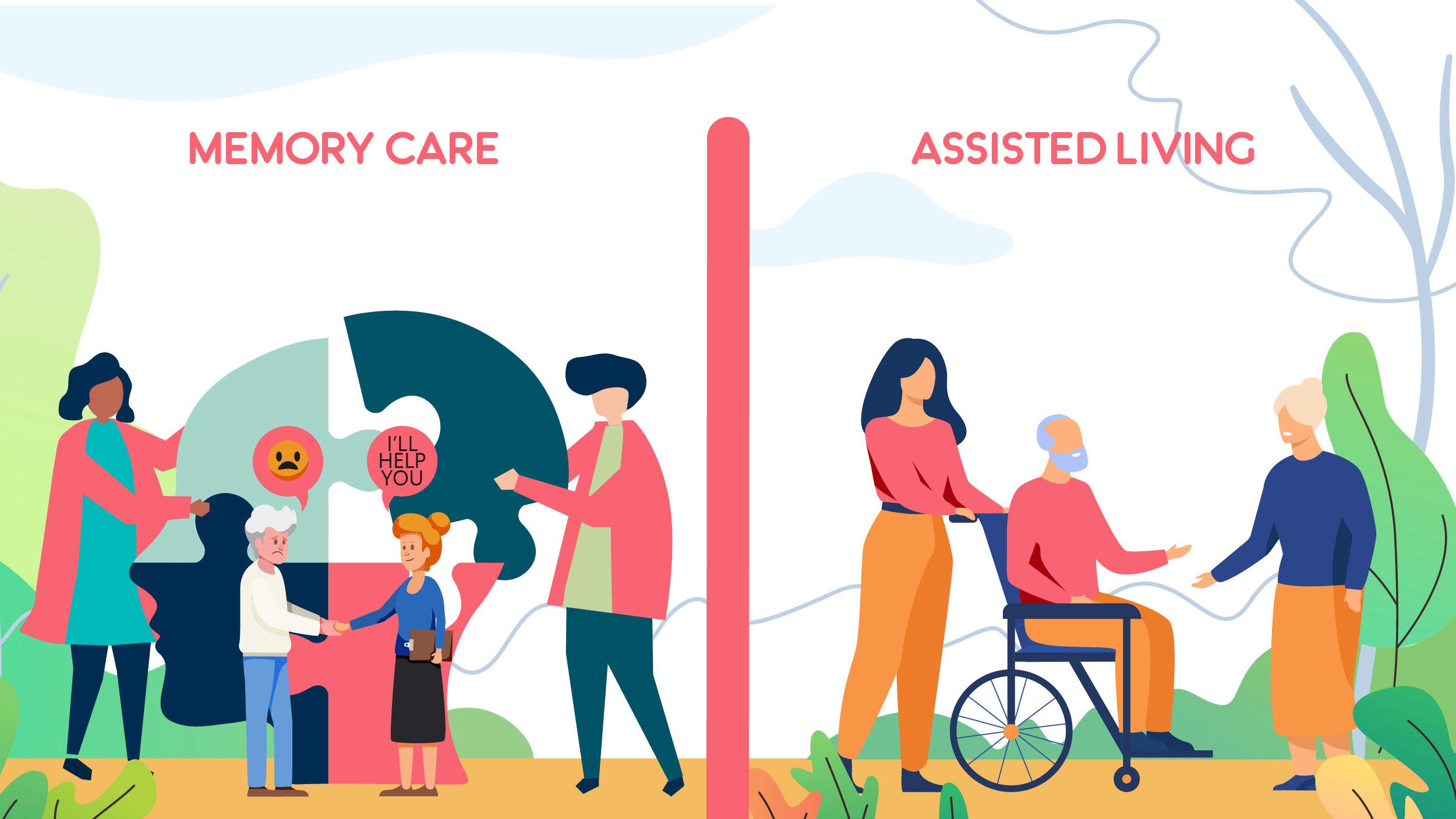Adeptly Managed Programs for Top Quality Alzheimers Care Charlotte Providers
Adeptly Managed Programs for Top Quality Alzheimers Care Charlotte Providers
Blog Article
Compassionate Alzheimer's Take care of Your Loved Ones
Recognizing the emotional and psychological needs of individuals affected by this problem is paramount in enhancing their high quality of life. As we discover the different approaches and methods that can transform caregiving into a more compassionate experience, it comes to be clear that the journey is as much about the caregiver as it is regarding the individual with Alzheimer's.
Understanding Alzheimer's Condition
Alzheimer's disease is a dynamic neurodegenerative disorder that largely influences cognitive feature, bring about amnesia, impaired reasoning, and adjustments in actions. It is the most common form of mental deterioration, accounting for 60-80% of all instances. The condition typically shows up in individuals matured 65 and older, although early-onset Alzheimer's can occur in more youthful people.
The pathophysiology of Alzheimer's involves the buildup of amyloid plaques and neurofibrillary tangles in the brain, causing neuronal degeneration and synaptic loss. These adjustments disrupt interaction between brain cells, gradually harming cognitive capabilities and day-to-day functioning. Early symptoms might include difficulty keeping in mind recent occasions and challenges in analytic, which can escalate to disorientation and problem with language.
As the illness breakthroughs, individuals might exhibit extensive memory deficiencies, confusion regarding time and place, and trouble recognizing enjoyed ones. Behavioral modifications, consisting of frustration, withdrawal, and anxiety, might also happen. Recognizing the clinical progression of Alzheimer's is essential for caretakers and medical care carriers, as it informs effective administration methods and interventions tailored to the requirements of people impacted by this devastating problem.
The Significance of Compassionate Treatment
Caring treatment is necessary in sustaining people with Alzheimer's condition, as it dramatically enhances their lifestyle. This approach focuses on the emotional and mental well-being of patients, cultivating a setting that promotes dignity, respect, and understanding. People with Alzheimer's usually experience anxiousness, aggravation, and complication, which can be alleviated with thoughtful interactions.
Compassion in caregiving not just assists in acknowledging the one-of-a-kind needs of each individual however additionally reinforces the caregiver-patient partnership. When caregivers approach their functions with concern, they develop a safe room where people really feel valued and understood, which can decrease behavior challenges connected with the condition. This supportive atmosphere encourages better interaction and engagement, promoting a much more reliable feedback to the treatment supplied.
Furthermore, compassionate treatment extends past the patient; it also includes assistance for family members. Caretakers that exercise compassion are more geared up to attend to the emotional concern encountered by enjoyed ones, offering reassurance and advice with a tough trip. Ultimately, the relevance of thoughtful care hinges on its ability to change the caregiving experience, leading to enhanced results for both individuals with Alzheimer's and their families.
Practical Caregiving Methods
Reliable caregiving for people with Alzheimer's condition requires functional approaches that resolve the special challenges postured by the problem. Among the primary strategies is developing a constant daily regimen, which can supply framework and knowledge, decreasing anxiety for both the individual and the caregiver. Caregivers should likewise simplify jobs by damaging them down into smaller sized, manageable steps, therefore boosting the person's sense of accomplishment and reducing frustration.
Interaction is an additional crucial element; caregivers ought to make use of clear, simple language and keep eye contact to cultivate understanding. Using visual signs, such as tags or photos, can better aid understanding and navigation in the setting.
Safety is paramount. Adjusting the space to get rid of risks-- such as mounting or protecting carpets grab bars-- can assist protect against mishaps. Additionally, caregivers ought to motivate freedom by allowing individuals to participate in acquainted tasks, which can boost self-esteem and promote wellness.
Emotional Support Techniques
Emotional well-being is a critical component of look after individuals with Alzheimer's disease, as it directly impacts their lifestyle. Alzheimers Care Charlotte. Giving emotional assistance strategies can dramatically boost their day-to-day experiences and cultivate a complacency and belonging
One reliable technique is energetic listening, which includes providing complete interest to the person, acknowledging their sensations, and responding with empathy. This method aids the individual feel valued and understood, minimizing feelings of seclusion try these out or stress. Additionally, making use of validation therapy can be beneficial; rather than dealing with misconceptions, caregivers can affirm the person's experiences and emotions, promoting a soothing setting.
Participating in memory therapy is another powerful approach, permitting people to share memories, sensations, and stories connected with their past. This not just promotes cognitive function however additionally reinforces emotional connections. Integrating familiar music or art can also stimulate favorable emotions and trigger happy interactions.
Additionally, ensuring regular physical touch, such as holding hands or gentle hugs, can provide comfort and reassurance, strengthening psychological bonds. These strategies, when regularly applied, can produce a nurturing environment that supports the emotional health and wellness of individuals with Alzheimer's, boosting their general health.
Developing an Encouraging Atmosphere

To start with, consider the physical format of the home. Clutter-free areas, familiar furnishings Look At This setups, and well-defined paths can minimize confusion and advertise mobility. Making use of relaxing colors and appropriate lighting can further enhance the environment, making it much more welcoming and less daunting.
Secondly, uniformity is essential. Preserving a predictable everyday routine helps individuals with Alzheimer's feeling more safe and secure. Familiar tasks, regular dish times, and arranged social interactions can significantly decrease stress and anxiety and disorientation.
In addition, sensory components play a vital function. Including familiar fragrances, music, and tactile objects can evoke favorable memories and promote engagement. Personalizing the room with treasured photographs and meaningful items can likewise promote a sense of identification.
Verdict
Thoughtful Alzheimer's care dramatically improves the quality of life for individuals impacted by this dynamic disease. Eventually, this method not only offers necessary comfort and support however likewise empowers people to navigate the intricacies of Alzheimer's with self-respect and grace.
As we check out the numerous techniques and methods that can change caregiving into an extra thoughtful experience, it comes to be clear that the journey is as much about the caretaker as it is concerning the individual with Alzheimer's.

Caring treatment is necessary in sustaining people with Alzheimer's disease, as it significantly improves their quality of life - Alzheimers Bonuses Care Charlotte. Eventually, the significance of compassionate treatment exists in its ability to transform the caregiving experience, leading to improved outcomes for both individuals with Alzheimer's and their families
Compassionate Alzheimer's treatment dramatically boosts the high quality of life for people affected by this progressive illness.
Report this page